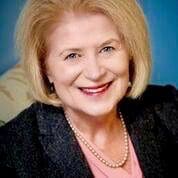Search Posts
Recent Posts
- We Cook! Mill’s Tavern’s Bison Teres Major with Truffle Moliterno, Yukon Gold Crisps, Aioli May 29, 2025
- RI Veterans: Did you know? 29.05.25 (Disability info, events, resources) – John A. Cianci May 29, 2025
- 5,000 local food benefit cards for eligible Seniors to buy fruit and veggies May 29, 2025
- Delta Dental grant brings Molar Express children’s dental care to Pawtucket and Central Falls May 29, 2025
- Rhode Island Weather for May 29, 2025 – Jack Donnelly May 29, 2025
Categories
Subscribe!
Thanks for subscribing! Please check your email for further instructions.

The Games People Play
By Mary T. O’Sullivan, MSOL
“The eternal problem of the human being is how to structure his waking hours” – Eric Berne, author of Games People Play.
Nancy is a bright, young, harried mother of two young children, married, and an unpublished author. She has a PhD., and is currently a lecturer at a university. She also has two dogs and a large house with acreage. While her husband is clearly a Baby Boomer, she is several years younger than he, most likely a Gen X or late Millennial. She came to coaching in order to express her dissatisfaction with her current work situation, and to seek other, more satisfying avenues for eventual career movement.
However, through our coaching sessions, what emerged was Nancy’s inability to focus on any particular activity to bring movement toward her goals. She often expressed a desire to engage in activities that she loves and that are “fun” for her to do. Prioritizing seemed to be a struggle for Nancy, and brainstorming solutions yielded a “yes, but…” in just about each case. Nancy agreed to experiment with small changes (bringing a notebook to each session, creating a better work space at her job, reconnecting with her writers group, etc.), but other areas, which she classifies as “mundane”, she struggles to undertake, yet she feels that these tasks are no less important than her desire to pursue more creative outlets, and our discussions become rather circular in the probing and exploring stages of the sessions.
Her husband has told her that her problem is “Time Management”, but she resists the concept of management of any kind. She also rejected the notion of “Time Control”, stating, “You can’t control time”. Her husband has also commented to her, “Not everything has to be fun.” She resists this concept, and wishes only to pursue things she considers interesting, fun, and creative, even though she still feels weighted down and obligated by her responsibilities as a mother, wife, householder, and university lecturer. In addition, Nancy expresses a sense of guilt when relaxing with her children or just reading a book. She seems to be disconnected from how to just be with herself.
For this client, I’ve chosen to address the psychological concept of “Ego State”, and the associated “Games”, and “Scripts” as Nancy clearly presents as a combination of “Free Child”, playful, creative, and emotional; and “Adapted Child”, focusing on “Rebellious Child” as her main characteristic in this mode.
Her relationship with her husband, as she describes it, appears to be “Playful Child” to “Nurturing and Rescuing Parent”, with an overtone of “Rational Adult” added to the scenario. To guide Nancy to greater autonomy, I chose a Zen-like approach to “awareness”, where Nancy focuses herself and gains deeper clarity. While these conversations are fluid, conflict arises when “Critical Parent” and “Playful” or “Rebellious Child” make their appearances. “Games” and “Scripts” are likely to appear in the interactions: “Harried” and “Why Don’t You – Yes But” immediately come to mind for “Games;” “I’m not OK, you’re OK” and “I’m okay, you’re not okay” are the most likely underlying scripts in this scenario.
With clients such as Nancy, guiding her to awareness can be explored through applying Zen principles of centering and deeper consciousness to help her focus and connect to her inner wisdom that allows autonomy.
The theory of “Games” and “Ego States” suits Nancy because she presents as a case study in the “Ego State” of “Child” while her observations about her husband reveal him as a classic “Rescuing and Nurturing Parent”, and “Rationale Adult”. It’s clear that he feels a level of frustration in his role, as he suggested that she contact me for professional coaching.
The dialogs Nancy divulges in our coaching sessions suggest she likes to have fun, does not complete tasks, (unfinished book. that she refuses to self-publish, has an incomplete short travel essay, a very disorganized basement which she wants to convert into a TV room, etc.) and yet continues to tackle new projects (starting a perfume business) while expressing dissatisfaction with herself for her many unfinished projects. She resists structure or management of any kind, feels imposed upon when faced with grading students’ papers, however, when relaxing, feels as though she should always be doing something else.
Nancy appears to be a woman who struggles with living in the present moment and has expressed her anxiety and feelings of failure when not completing projects. Her rationalization is that things must be done perfectly or not done at all.
In my dealings so far with Nancy, she has proven that she is challenged by staying organized, that she is juggling many balls, and is feeling very overwhelmed. In fact, when probed about “What is stopping you from finishing your novel?” she burst into tears. When asked, “Where does your need for perfection come from?” she cried again and stated that it came from her mother. Upon further probing, Nancy revealed that her mother always kept an immaculate home, with everything tastefully appointed including her gardens. I asked Nancy if her mother had any other obligations outside of the home, and she admitted that her mother was a stay at home Mom and never worked outside the home, therefore pouring all her energy and creativity into making her home “perfect”.
In later sessions, Nancy again reflected on an acquaintance that had a very beautiful well-kept home. Again, I asked if the person had any other obligations outside of the home. Again, Nancy became very wistful and stated that this person was also a stay at home Mom. Nancy reiterated her lack of time and organizational skills to make her home “perfect”, but considered the tasks of homemaking “mundane” and not fun. However, she could not prioritize her tasks or distinguish the importance of one task over another, unless the task itself was “fun” or creative.
This observation led me to infer that Nancy’s current “Child” state was becoming unsatisfactory to her and her husband, and that in order to grow and behave in an “Adult” state, she would have to exhibit change on a very elemental level. It also appeared that Nancy did not understand completing tasks in the moment, or doing just one task at a time, which led me to believe that Nancy had not reached beyond the Game state into Berne’s state of autonomy.
In addition, Nancy’s lack of completing her homework assignments (“Rebellious Child”) and engaging her husband to help her with them (“Rescuing/Nurturing Parent”) underscored my theory. In fact, she often lost her notes from previous sessions, even when provided with paper and pen. (“Rebellious Child”).
Through my strong use of acknowledgment, affirmation, and encouragement of her strengths (desire for creativity, playfulness, and fun) Nancy agreed to take baby steps to begin to achieve her goals. She obtained a notebook for our sessions on her own, she made her new office at the university a pleasant place to complete her students’ grading, she took on fewer unpaid tasks at the university, explored her potential perfume business, and turned down taking on a heavier teaching load.
After some resistance (she did not want to be like a woman she knows who has a gigantic calendar in the kitchen with a different color for each family member’s activities – “Rebellious Child”), she agreed to experiment with creating one unified calendar for her whole family that all can access (we brainstormed use of the Cloud technology to help with this.) She agreed that the best path forward for her was to set small, manageable goals, and to not feel bad if her plan did not work out. My inference again is that Nancy is not centered and has not tapped into her inner wisdom in order to perceive that her life is in balance. In future meetings with Nancy, maybe some Zen Principles could assist her in moving forward and gaining autonomy. The concept behind Zen Principles is to cultivate “Peace of Mind and Body”.
Now, couldn’t we all use some of that!

Mary T. O’Sullivan, MSOL, PCC, SHRM-SCP
Mary O’Sullivan has over 30 years of experience in the aerospace and defense industry. In each of her roles she acted as a change agent, moving teams and individuals from status quo to higher levels of performance, through offering solutions focused on changing behaviors and fostering growth.
(Photo: Common Sense Leadership)
